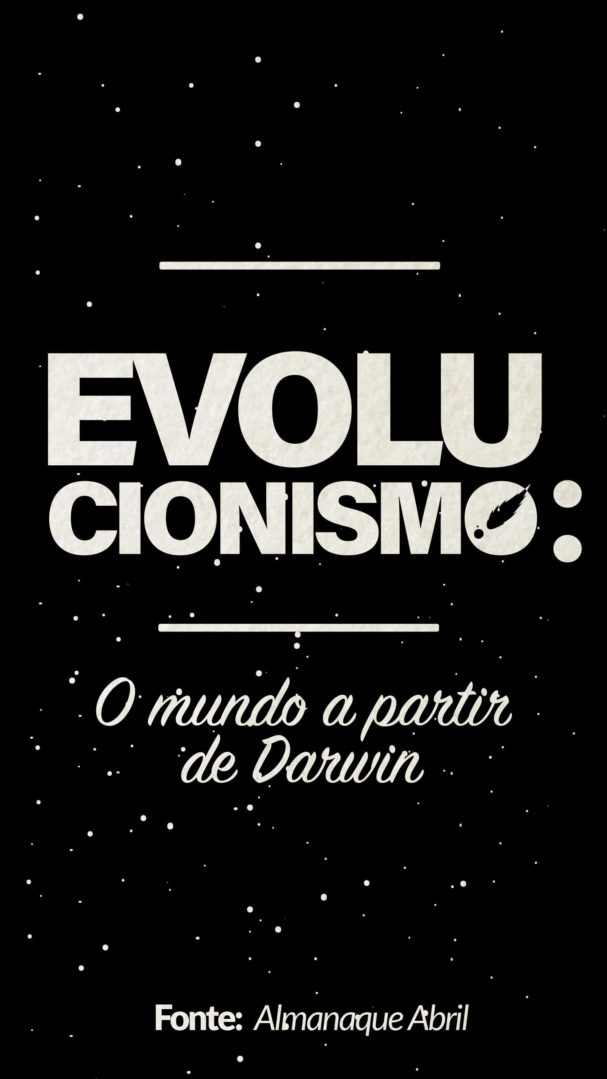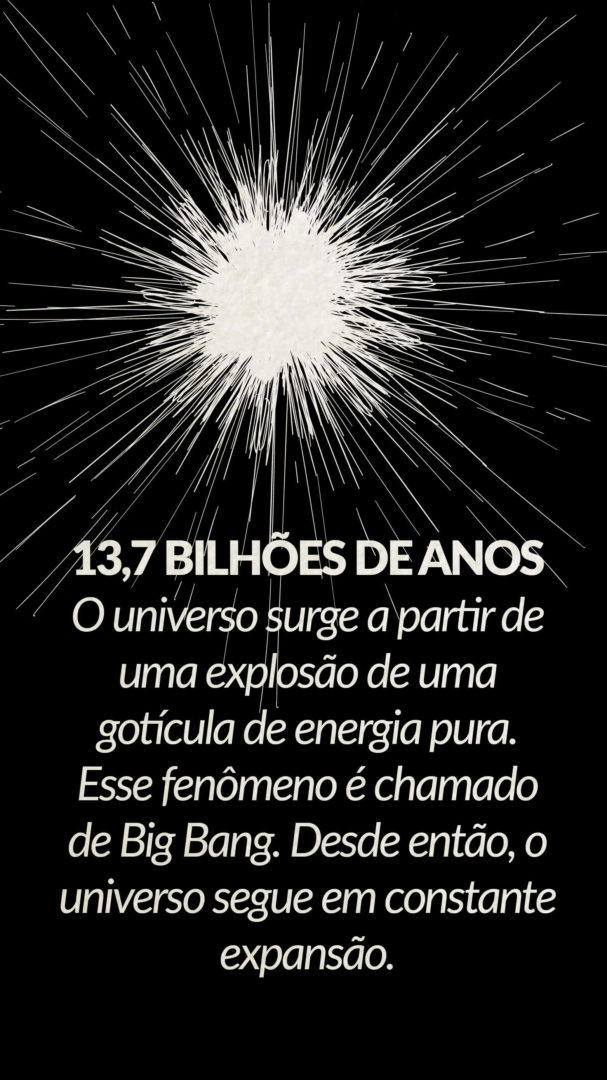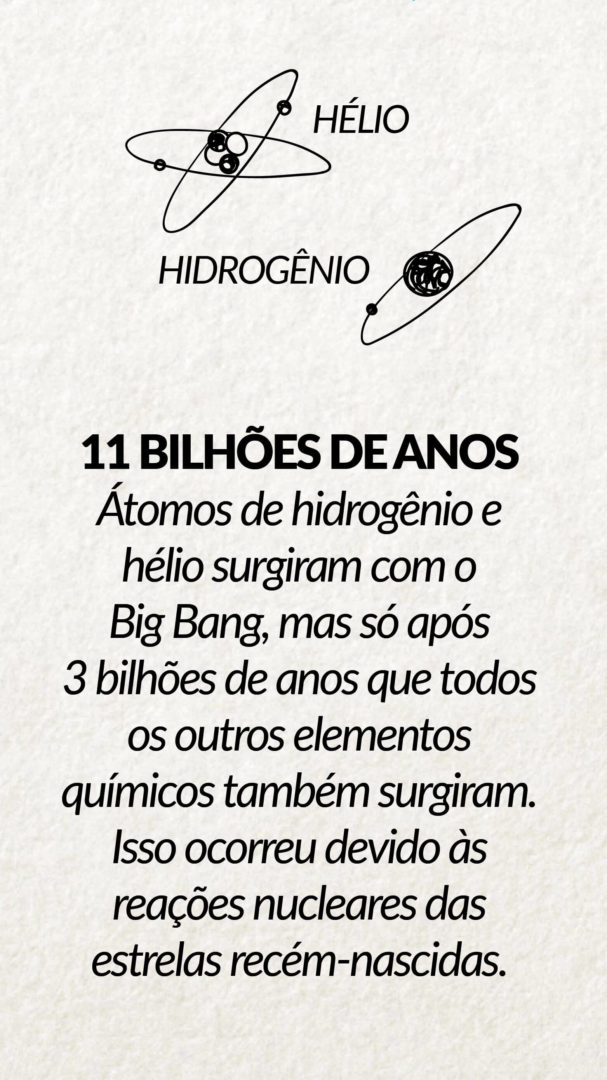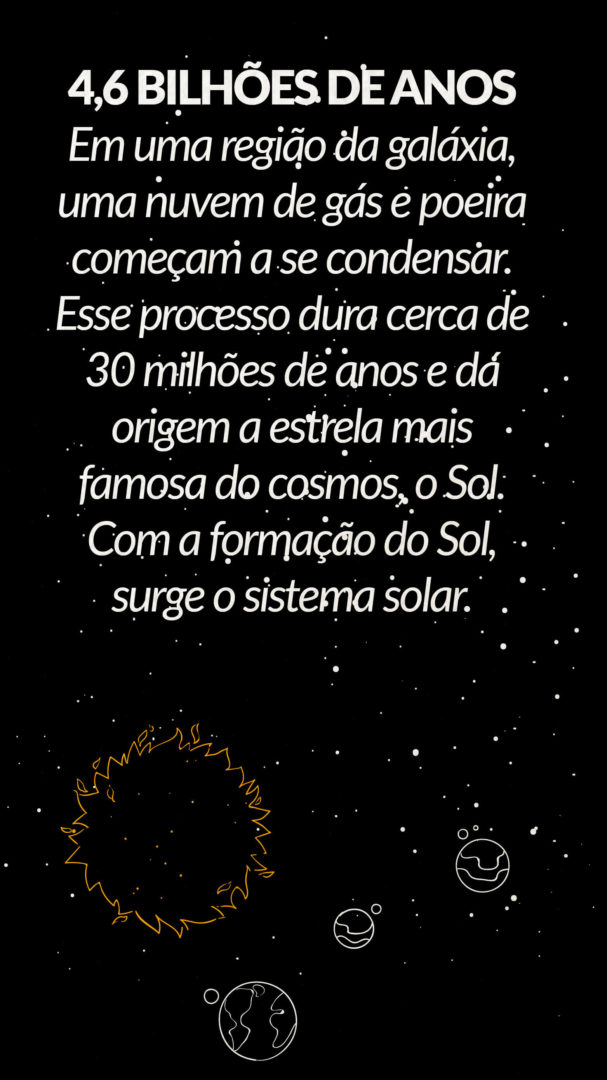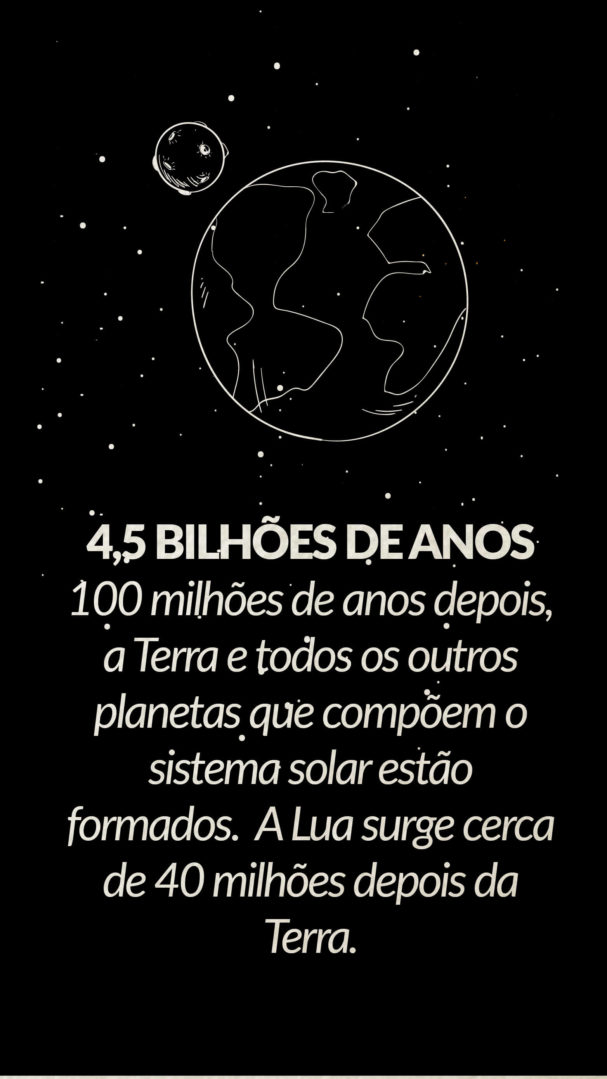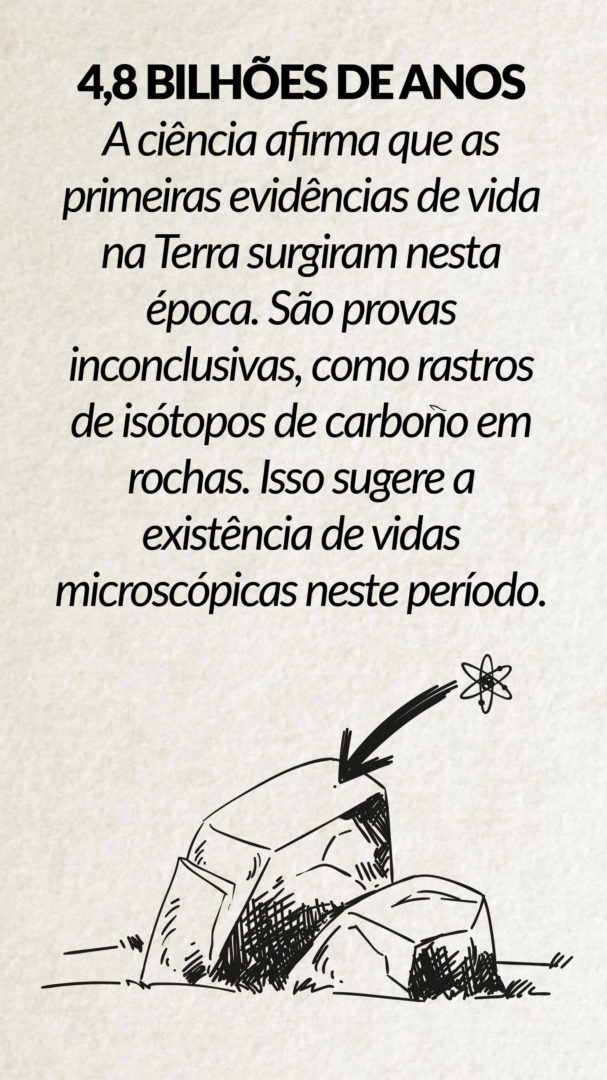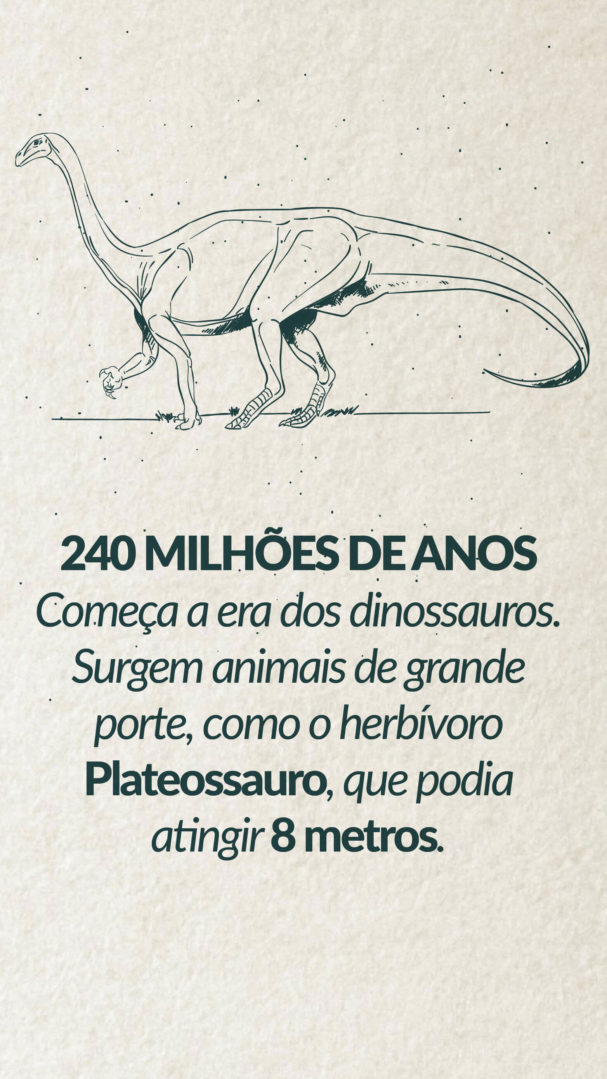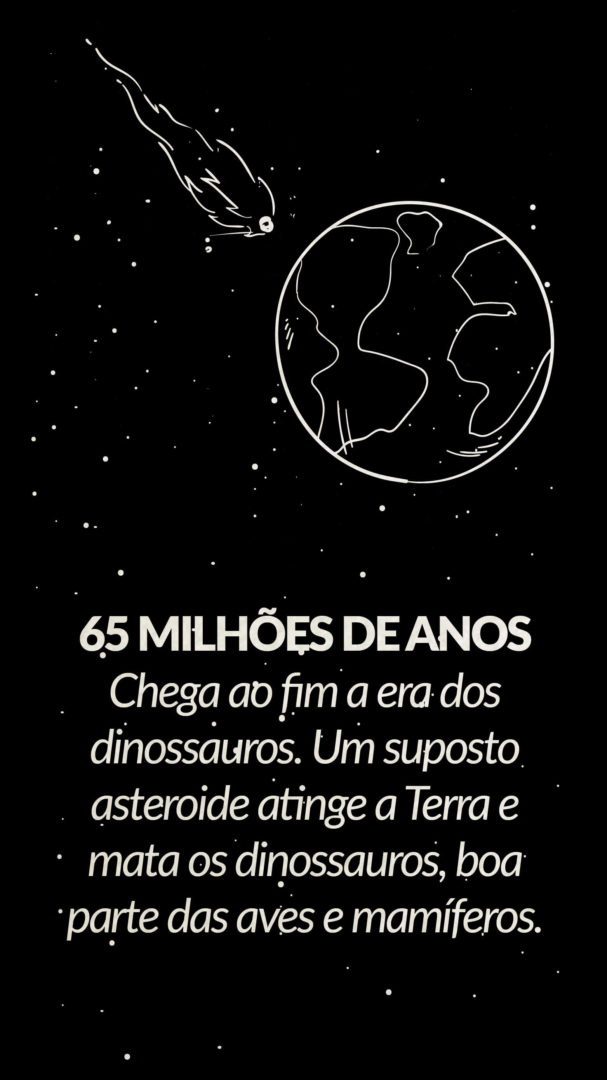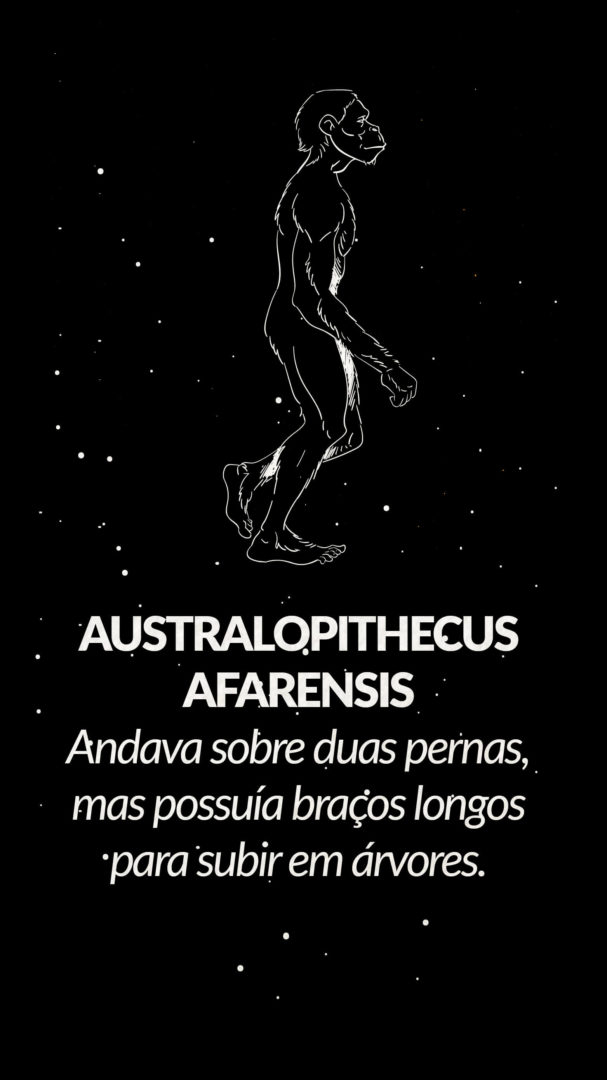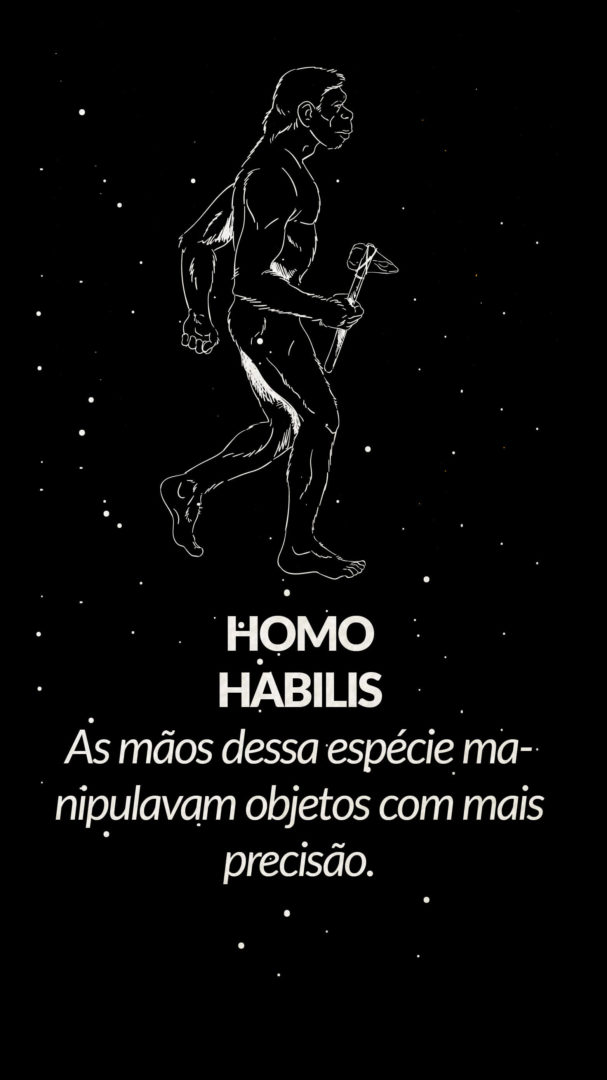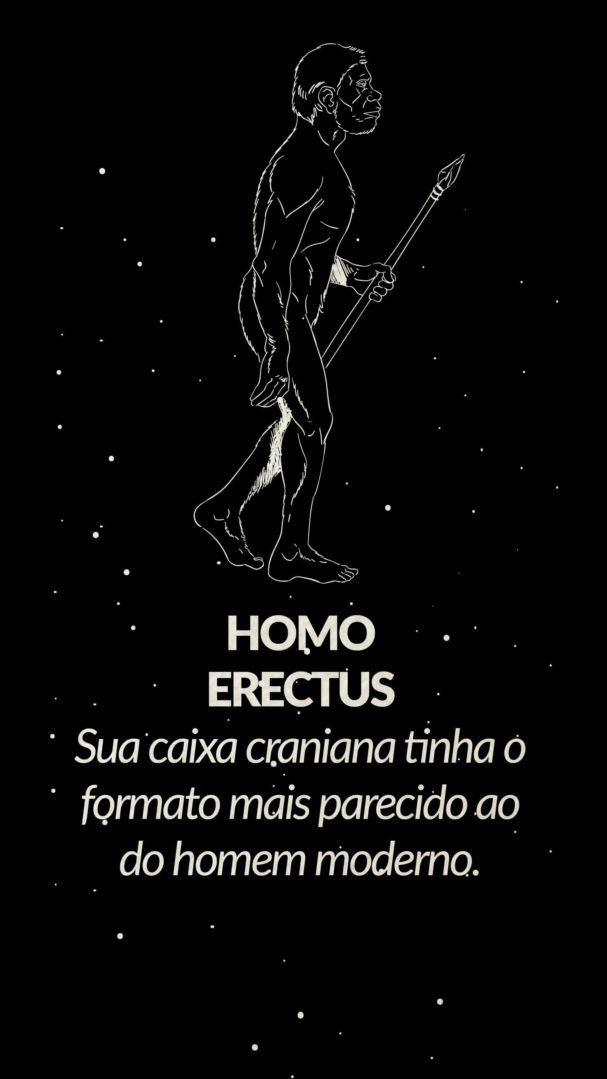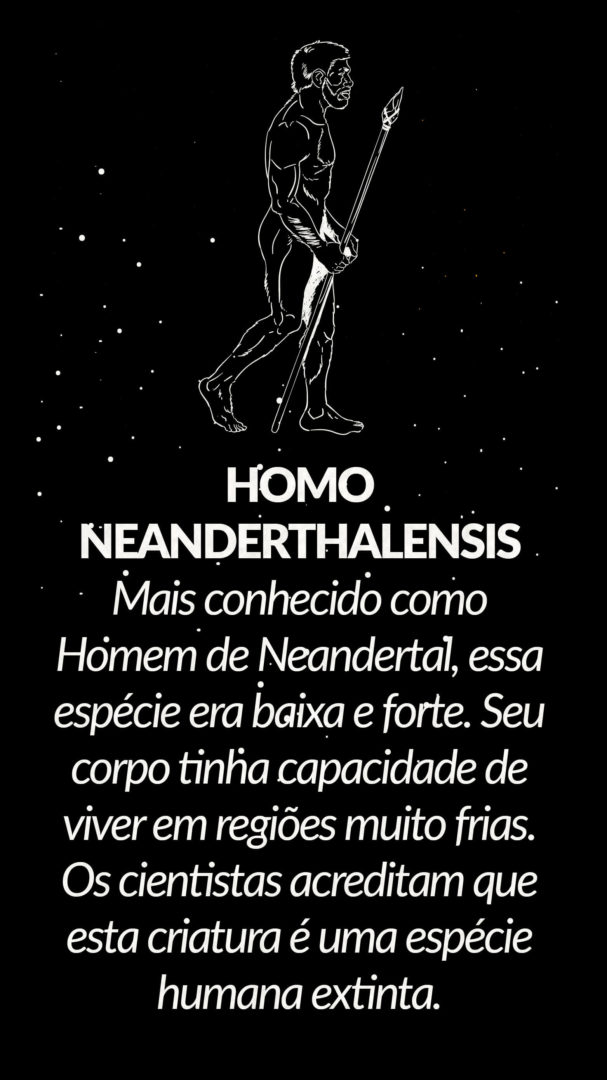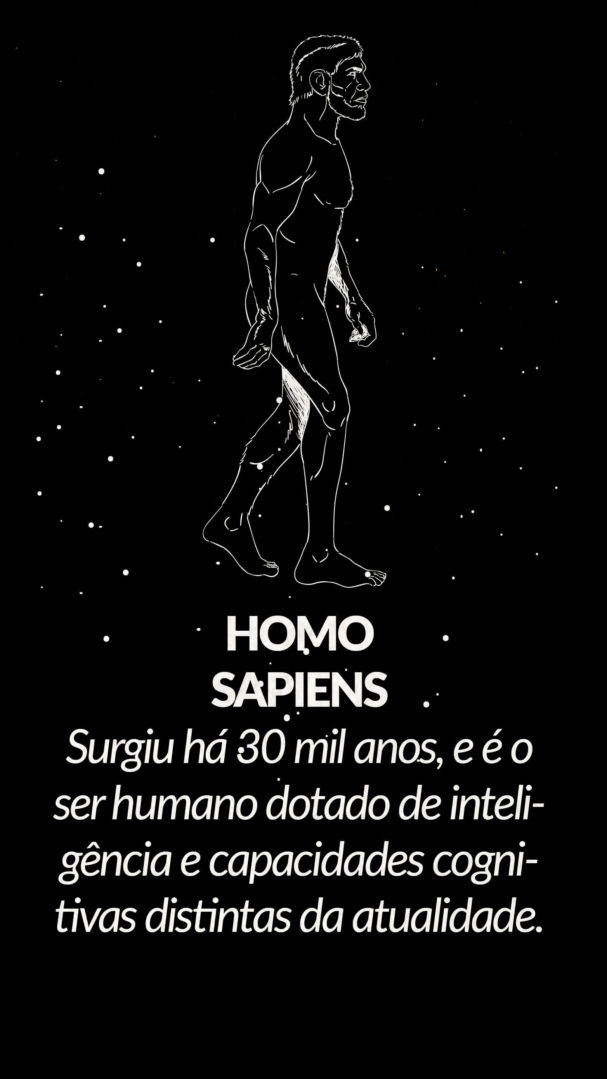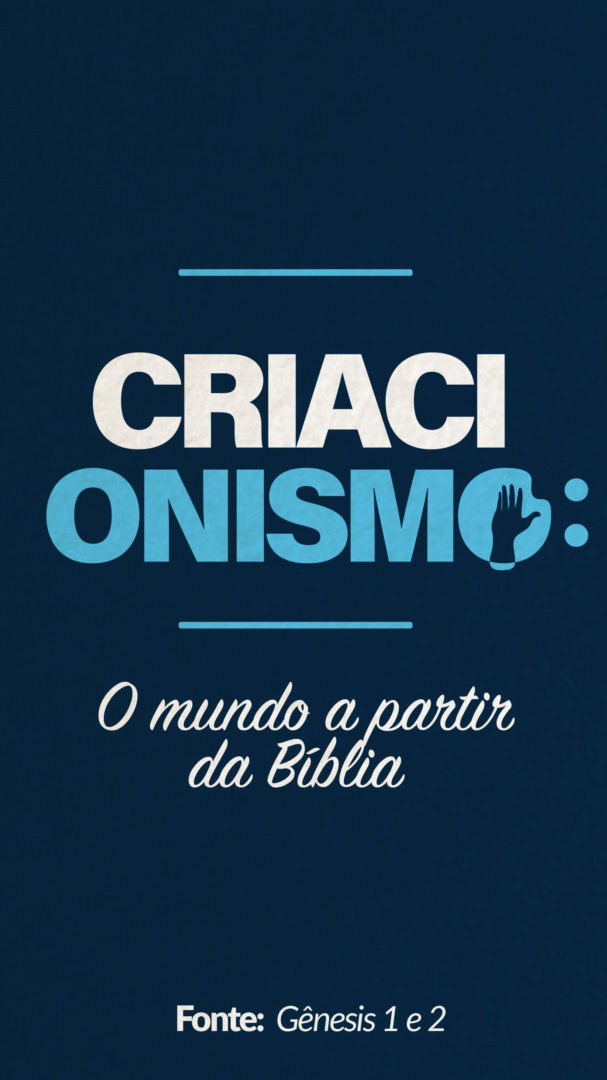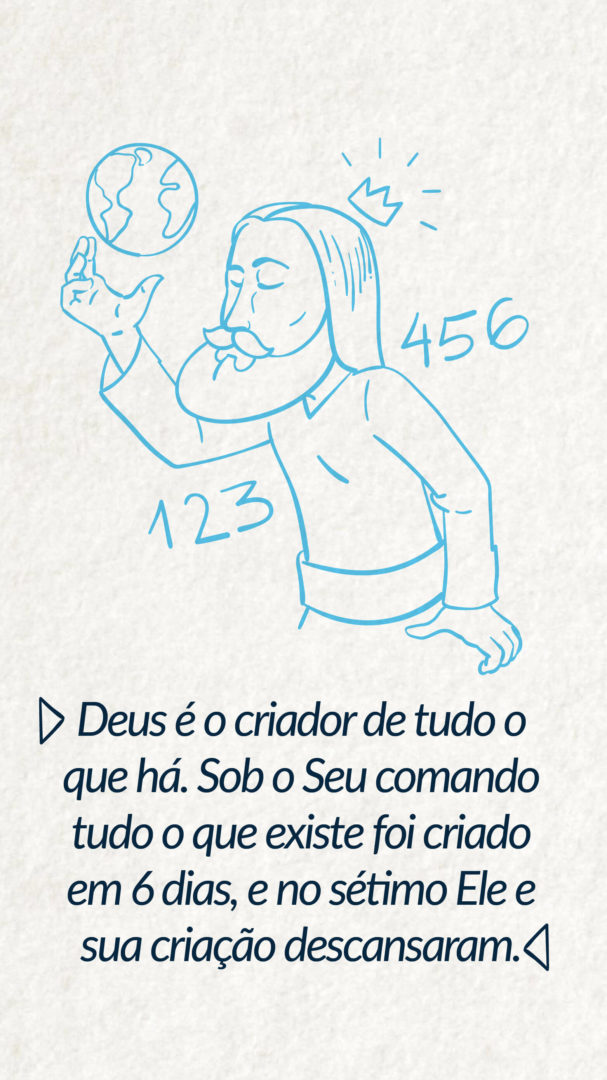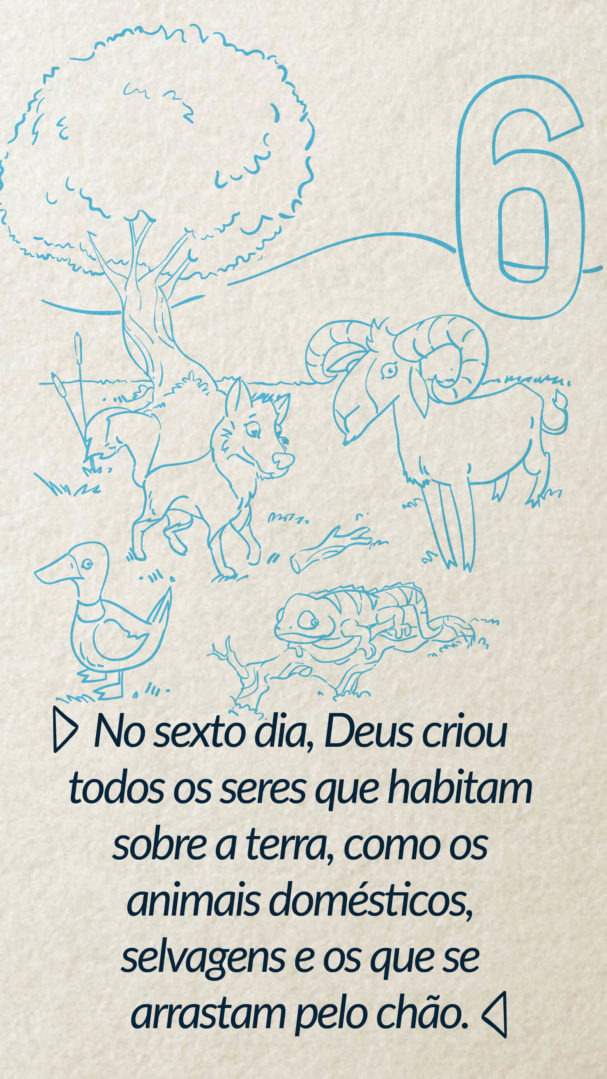Where did I come from? Where am I going? Those are the most important questions of humanity. Everybody wants to know how the universe – and everything that exists on the Earth, were started.
The truth is that answering these questions has been a great challenge. There are a few theories that solve this great life enigma, but they still split opinions. The two main ones are: Evolution Theory (evolutionism) and Creation Theory (creationism).
Para começar a entender um pouco mais sobre as teorias que explicam a origem do universo, é preciso levar em consideração aspectos positivos e negativos sobre do assunto. Saiba mais no vídeo a seguir:
SPECIES EVOLUTION
Evolutionism defends the theory that the universe emerged from an explosion known as the Big Bang. As for living things, everything happened due to an evolutionary and gradual process, while the environment in which they lived suffered climatic or catastrophic changes. Some scientists, such as Alfred Russel Wallace and Jean-Baptise Lamarck, began to study the origin of the universe in the mid-1800s, but it was Charles Robert Darwin who developed and structured the Theory of Species Evolution in his book The Origin of Species, released in 1859.
Recent studies suggest that the universe is 14 billion years old and that the entire evolutionary process took place over this period. The infographic below can help you better understand the theory of evolution:
Expert Interview
What are strong and weak aspects of the Theory of Evolution?
RA: Since Evolution is a theory, that is, a random explanation, without foundation or objective proof, and sustained at its base by speculative or philosophical thinking, it is almost difficult to point out positive aspects. Perhaps the positive that can be pointed out is the inspiration that the concept of the term “evolution” or “evolutionism” gives to the greater commitment of the study and the advancement of the biological sciences, in the sense of seeking positive answers and proofs that support this idea. Since “Evolution” starts from the origin of a small prime cell or species that soon evolved into various species over the centuries; it must be considered that this fact – the appearance of the prime cell, cannot be evaluated or measured, is not subject to repetition, and cannot give evidence of future results. Moreover, the theory of evolution does not contribute to the elaboration of natural laws. So by definition, the idea of evolution is not science; but simply rational speculation.
CREATIONISM
Creation Theory suggests that a supernatural agent – God – created the universe and all living things in just 6 days. Creationists also believe that the earth is only 6,000 years old, not billions of years old as the evolutionary theory points out. The basis of this theory is in the Bible in the book of Genesis, but dozens of scientific studies have been published worldwide claiming its truth. Creationists have been around since it all started. Ancient records found in caves, papyri, and temples reveal diverse cultures worshiping supernatural beings whose representation is that of a creator. Learn more.
In the infographic below you can better understand the Creation Theory.
What are the strengths and weaknesses of Creation Theory?
RA: “Creationism”, by its literary origin or enunciation of its content, cannot be called “theory”. In any case the version of “creationism” is a doctrine. A theory is a rational statement, or a speculative assumption of a somewhat abstract subject that arises in the mind of an expositor. One theory is human product. On the other hand, a doctrine is the revelation of a supernatural Being, with the purpose of establishing the cognitive bonds of God with human kind. A doctrine emerges as an interpretation of God’s revelation. Therefore, “creationism” cannot be considered a theory, but a doctrine, which is presented in the Bible, or Holy Scriptures.
As a doctrine, creationism has no errors. It may be agreed that there are different forms of interpretation of divine revelation; but that may not be attributed to the exposition of the Word of God. In any case, the difference of interpretation is subject to closer verification with the revelation itself in order to bring the divine version itself closer.
About the strong aspects, creationism is the only statement that gives a sensible version of the reality in which man lives.
Quiz
You consider yourself:
Which of these personalities are most familiar to you?
Have you ever read the Bible, specifically the book Genesis?
Do you know the theory of evolution to the point where you can argue?
Which of the following categories do you fit in?
For you, what makes the most sense?
You are an evolutionist and understand well the theory of evolution. You may never have been interested in the Creationist Theory, but how about understanding a little better so that you can argue about it? Learn more.
You are a creationist! And you are very sure of your beliefs. How about studying a bit more about it so you can share it with your friends? Learn more.
Well, it seems that you are still not quite sure of your beliefs. That’s fine, because choosing a theory to believe is not an easy task. But we can help you! Learn more.
The main counterpoint between the theory of evolution and the creationist theory is the role of the creator. Other theories also suggest the participation of a supernatural and powerful being capable of creating and giving life. One example is Intelligent Design Theory, which implies the action of an intelligent being behind the most complex forms of life. Learn more in the following video:
Not all scientists are evolutionists, just as not every creationist is a Christian or believes in God. Deciding which theory to believe is also a cultural matter. It has to do with the way a person is raised by their parents, the country of birth, the religion and the decision itself.
Learn more about the beginning of the universe in the Bible.

